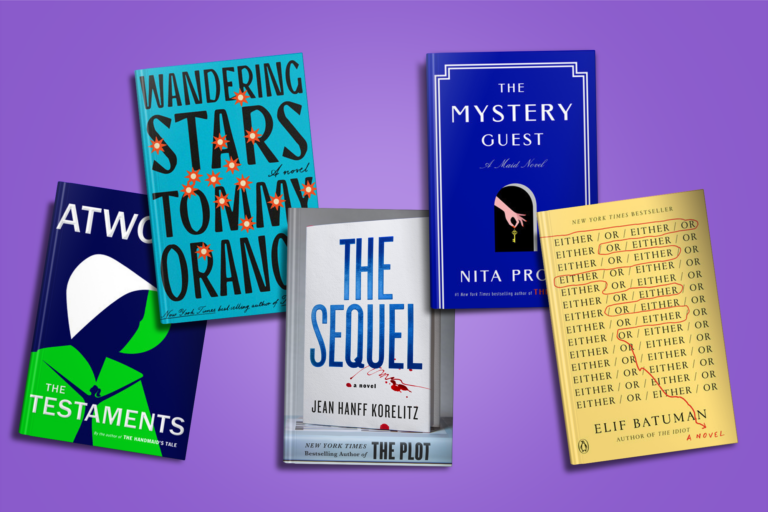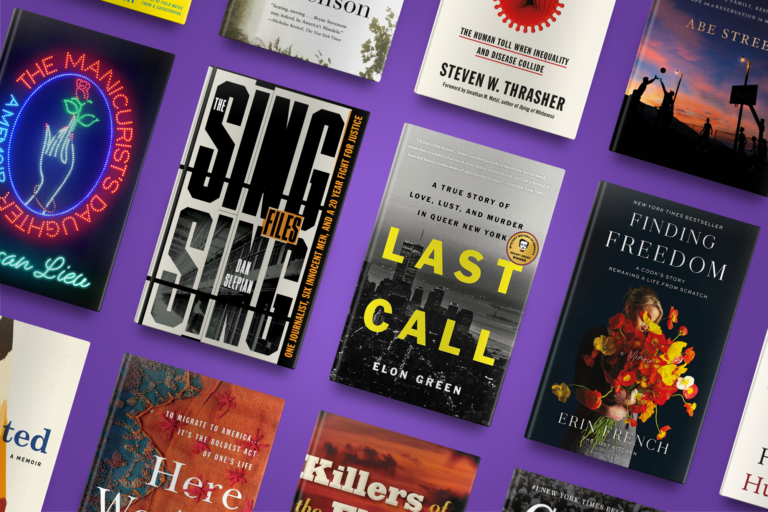A crop of new history books are hitting the shelves — and we picked out the best of the bunch. The compelling reads below include a historical true crime case on the high seas, the lost histories of women in medieval Europe, and stirring accounts of the Civil Rights Movement. They’re sure to keep your mind engaged as spring blossoms into summer.
10 Eye-Opening New History Books to Crack Open This Spring
By Brandon Miller

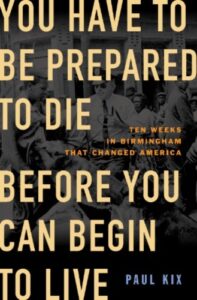
You Have to Be Prepared to Die Before You Can Begin to Live
By Paul Kix
In You Have to Be Prepared to Die Before You Can Begin to Live, journalist Paul Kix delivers a riveting portrait of a critical moment in American history. The narrative centers on Project C, the 10-week campaign to desegregate Birmingham, Alabama, led by the Southern Christian Leadership Conference. Project C changed the trajectory of the Civil Rights Movement in America; Civil Rights luminaries Martin Luther King, Jr., Wyatt Walker, Fred Shuttlesworth, and James Bevel were all there to drive the fight. And yet, no book has ever fully documented this moment in time — until now. Kix’s powerful prose and brilliant storytelling take readers behind the scenes of the campaign, bringing Project C and its participants to life and drawing a clear line from the events of 1963 to present-day struggles against discrimination and inequality.
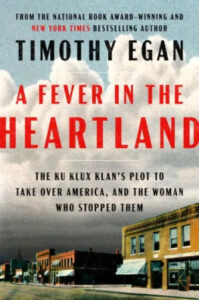
A Fever in the Heartland
By Timothy Egan
From Pulitzer Prize–winning author Timothy Egan, A Fever in the Heartland traces the insidious spread of the Ku Klux Klan across 1920s America with a focus on D.C. Stephenson, the charismatic grifter behind the hate group’s rise to power. Egan counters Stephenson’s narrative with the story of Madge Oberholtzer, an Indiana woman whose heroic deathbed testimony finally brought Stephenson down and helped drive the KKK back into the shadows.
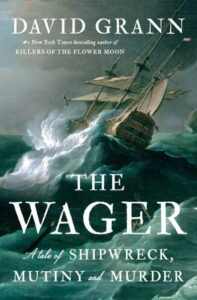
The Wager
By David Grann
In The Wager, New York Times bestselling author David Grann (Killers of the Flower Moon) crafts a historical true crime narrative that reads like a thrilling mystery novel. The book centers on the case of the HMS Wager, a British warship that was wrecked off the coast of Patagonia in 1741. When 30 survivors of the Wager washed up on Brazilian shores in 1742, they were hailed as heroes. Six months later, however, three additional survivors turned up in Chile and told a drastically different story of treachery and murder — leading to a criminal trial that hinged on the clashing accounts of the castaways.
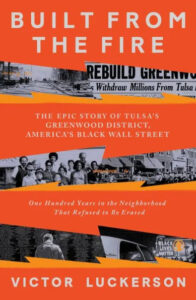
Built from the Fire: The Epic Story of Tulsa’s Greenwood District, America’s Black Wall Street
By Victor Luckerson
Built from the Fire chronicles the epic history of the Greenwood district in Tulsa, Oklahoma, a neighborhood that served as a hub of Black life and prosperity and as the backdrop to a terrible tragedy. Journalist Victor Luckerson movingly traces Greenwood’s evolution across the decades, examining the community’s origins in the early 20th century, the abominable Tulsa Race Massacre of 1921, the resiliency of the survivors in the wake of the atrocity, and the modern-day urban-renewal policies that have led to gentrification and displacement. Mightily told, Built from the Fire offers a “sweeping and intimate portrait of racial violence, empowerment, and social action” (Kirkus Reviews, starred review).
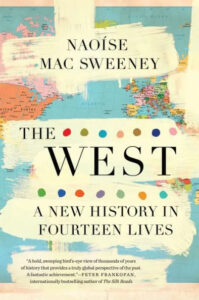
The West: A New History in Fourteen Lives
By Naoíse Mac Sweeney
In The West, prize-winning historian Naoíse Mac Sweeney rewrites the Western history narrative, identifying 14 crucial yet oft-overlooked individuals who helped shape Western culture. Among them are medieval Arab scholar Al-Kindi, the mixed-race immigrant and historian Herodotus, and Phillis Wheatley, an enslaved woman of Boston who in 1773 became the first African American author to publish a collection of poetry. Mac Sweeney’s magnificent book questions what it means to live in a Western civilization and uses figures from different cultures, continents, classes, and religions to expand its definition.
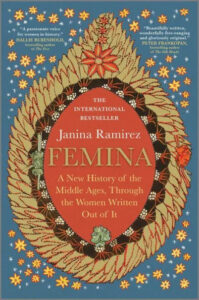
Femina: A New History of the Middle Ages, Through the Women Written Out of It
By Janina Ramirez
In a world where women’s contributions to society have been devalued or ignored throughout history, Femina puts them front and center. Oxford historian Janina Ramirez sets her focus on the Middle Ages, an era defined by kings, Vikings, and patriarchal rule. Of course, this is far from the full story. Ramirez introduces us to a cast of fascinating women whose experiences and historical impacts were all but lost to time. Among them is Jadwiga of Poland, medieval Europe’s only female king, and the Loftus Princess, whose life story offers an intriguing look at the emergence of Christianity in England. A rousing feminist narrative that champions the leading ladies of the past, Femina makes for a spirited read.
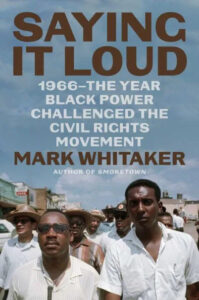
Saying It Loud
By Mark Whitaker
In Saying It Loud, journalist Mark Whitaker chronicles the transformative events of the Civil Rights Movement in 1966. During this time the Black Panther Party for Self-Defense emerged, and the Black Power phenomenon challenged nonviolent strategies advocated by Martin Luther King, Jr. Thoroughly researched and enriched with riveting historical details, Saying It Loud presents a “comprehensive and character-driven portrait of the ‘first Black Power generation’ ” (Publishers Weekly).

Pathogenesis: A History of the World in Eight Plagues
By Jonathan Kennedy
Who or what makes history? In this timely and provocative new history book, Jonathan Kennedy proposes that it isn’t humans but germs. Pathogenesis spans 60,000 years and integrates insights from archaeologists, geneticists, and economists to reveal how eight major viral outbreaks shaped the world as we know it. Suffused with incredible — and, at times, unsettling — facts, Pathogenesis offers an engrossing look into the microscope at the world-altering power of infectious diseases.
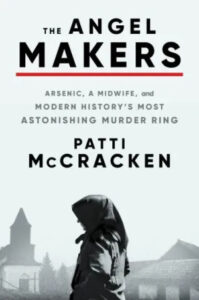
The Angel Makers
By Patti McCracken
In The Angel Makers, Patti McCracken delivers a startling true crime book unlike any you’ve read before, particularly because of the astonishing nature of the case. Auntie Suzy, a 1920s midwife in a Hungarian farming village, may have been one of the most prolific murderers of the 20th century. She distilled arsenic from flypaper and passed it along to the other women in the village, many of whom would use the poison on their abusive partners. Soon, however, the killing spree escalated and the body count climbed. All told, Suzy and her murder ring claimed the lives of at least 160 people over the course of a decade.

Humanly Possible
By Sarah Bakewell
In Humanly Possible, Sarah Bakewell delves into the history of humanism and the many writers, theorists, artists, and scientists who have grappled with our existence. The narrative spans the centuries, interweaving the works of Renaissance scholar Desiderius Erasmus with philosophies advanced by modern-day thinkers like Bertrand Russell and Zora Neale Hurston. The result is a hopeful history book brimming with ideas about what it means to be human and how to be a better person to other people.
Share with your friends
Facebook
Twitter
LinkedIn
Pinterest
Related Articles
We’re excited to serve up our favorite comfort food cookbooks full of warmth, nostalgia, and deliciousness.
Sometimes you enjoy an original so much, you just can’t wait for its follow-up.
From harrowing true crime and eye-opening memoirs to hard-hitting works of investigative journalism, these contemporary nonfiction books are guaranteed to spark lively conversations.
Celadon delivered
Subscribe to get articles about writing, adding to your TBR pile, and simply content we feel is worth sharing. And yes, also sign up to be the first to hear about giveaways, our acquisitions, and exclusives!
Celadon delivered
"*" indicates required fields

